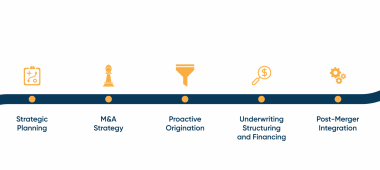“Micromanagement is bringing in a team of smart, talented people and crushing their souls by telling them what font size to use” – Chieh Huang.
In 2013, Chieh Huang founded Boxed, an online wholesale retailer. Like many founders, he started the company in his garage. He packed boxes by hand with a few employees. The printer he used to print shipping labels was incredibly slow, causing frustrating periods of downtime. To alleviate the boredom and frustration the printer caused, Huang started using the time to handwrite short, uplifting notes to include in each box shipped to a customer.
Soon, Boxed began to grow and Huang’s role along with it. With the company’s revenue in the hundreds of millions, the days of Huang hand packing boxes in his garage were long gone. But, convinced that those notes and the culture they embodied were crucial to his business’s success, Huang made sure that the practice continued.
But, instead of simply instructing his employees to write uplifting messages, Huang controlled every aspect of the process. He told employees what pen to use, what color, what the message should be, how big their handwriting should be, how wide the margins should be, and so on. Before long a task that was meant to add a little fun to an otherwise monotonous task had become a top HR complaint.
Micromanagement is a habit that most entrepreneurs fall into at some point.
If the story above sounds familiar, you might be one of them. Business owners often believe that the only way to know something is done right is to do it themselves. But this can have disastrous effects on the long-term health of your business.
Controlling every aspect of how your employees do their jobs shows a lack of confidence in their ability, causing low morale. This is especially important in the context of succession planning. Your business is a going concern: it should be able to keep going without you. Employees who are micromanaged will develop a sense of learned helplessness. Your staff will begin to depend on you, turning to you every time a problem arises. When your employees lack the confidence to make important decisions on their own, the survival of the business rests solely on you.
Micromanagement affects you just as much as your employees.
If you take on the responsibility of running every task you become prone to burnout and quickly lose the passion that led you to start your business in the first place. Micromanaging also prevents you from performing the important tasks you need to do to run your business. If you are to busy doing everyone else’s job, when will you have time to do yours?
So, given all of that, why do so many business owners micromanage?
Ultimately, it comes from a sense of losing control. When you started your business, your situation was probably like Chieh Huang’s. Just you, maybe a few employees, on the ground doing the work yourself. But as your business began to grow, your role became that of a manager, and you became more and more separated from the everyday operations of your business.
Letting go can be tough, but ultimately it is necessary to build a successful and scalable business. You hired your employees because they are talented and capable. Give them room to show their value and your business will reap the benefits.















